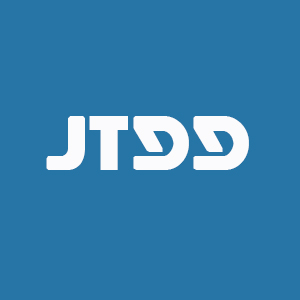REFERENCES
1. Klco JM, Mullighan CG. Advances in germline predisposition to acute leukaemias and myeloid neoplasms. Nat Rev Cancer 2021;21:122-37.
2. Bannon SA, DiNardo CD. Hereditary predispositions to myelodysplastic syndrome. Int J Mol Sci 2016;17:838.
3. Li ST, Wang J, Wei R, et al. Rare germline variant contributions to myeloid malignancy susceptibility. Leukemia 2020;34:1675-8.
4. Churpek JE. Familial myelodysplastic syndrome/acute myeloid leukemia. Best Pract Res Clin Haematol 2017;30:287-9.
5. Churpek JE, Artz A, Bishop M, Liu H, Godley LA. Correspondence regarding the consensus statement from the worldwide network for blood and marrow transplantation standing committee on donor issues. Biol Blood Marrow Transplant 2016;22:183-4.
6. University of Chicago Hematopoietic Malignancies Cancer Risk Team. How I diagnose and manage individuals at risk for inherited myeloid malignancies. Blood 2016;128:1800-13.
7. Naresh KN, Medeiros LJ. WHO Fifth Edition Classification Project. Introduction to the fifth edition of the world health organization classification of tumors of hematopoietic and lymphoid tissues. Mod Pathol 2023;36:100330.
8. Kohlmann W, Schiffman JD. Discussing and managing hematologic germ line variants. Hematology Am Soc Hematol Educ Program 2016;2016:309-15.
9. Aprili G, Bosi A, Lombardini L, Pupella S, Vassanelli A. Italian Society of Transfusion Medicine and Immunohaematology; Italian Group for Bone Marrow Transplantation working group. Recommendations for managing the donation of haematopoietic stem cells from related and unrelated donors for allogeneic transplantation. Blood Transfus 2013;11:296-304.
10. Zhu Q, Yan L, Liu Q, et al. Exome chip analyses identify genes affecting mortality after HLA-matched unrelated-donor blood and marrow transplantation. Blood 2018;131:2490-9.
11. Hahn T, Wang J, Preus LM, et al. Novel genetic variants associated with mortality after unrelated donor allogeneic hematopoietic cell transplantation. EClinicalMedicine 2021;40:101093.
12. Hahn T, Sucheston-Campbell LE, Preus L, et al. Establishment of definitions and review process for consistent adjudication of cause-specific mortality after allogeneic unrelated-donor hematopoietic cell transplantation. Biol Blood Marrow Transplant 2015;21:1679-86.
13. Ionita-Laza I, Lee S, Makarov V, Buxbaum JD, Lin X. Sequence kernel association tests for the combined effect of rare and common variants. Am J Hum Genet 2013;92:841-53.
14. Kasak L, Punab M, Nagirnaja L, et al. GEMINI Consortium. Bi-allelic recessive loss-of-function variants in FANCM cause non-obstructive azoospermia. Am J Hum Genet 2018;103:200-12.
15. Neidhardt G, Hauke J, Ramser J, et al. Association between loss-of-function mutations within the FANCM gene and early-onset familial breast cancer. JAMA Oncol 2017;3:1245-8.
16. Kiiski JI, Tervasmäki A, Pelttari LM, et al. FANCM mutation c.5791C>T is a risk factor for triple-negative breast cancer in the Finnish population. Breast Cancer Res Treat 2017;166:217-26.
17. Godley LA, Shimamura A. Genetic predisposition to hematologic malignancies: management and surveillance. Blood 2017;130:424-32.
18. Gröbner SN, Worst BC, Weischenfeldt J, et al. ICGC PedBrain-Seq Project; ICGC MMML-Seq Project. The landscape of genomic alterations across childhood cancers. Nature 2018;555:321-7.
19. Huang KL, Mashl RJ, Wu Y, et al. Cancer Genome Atlas Research Network. Pathogenic germline variants in 10,389 adult cancers. Cell 2018;173:355-70.e14.
20. Gracia-Aznarez FJ, Fernandez V, Pita G, et al. Whole exome sequencing suggests much of non-BRCA1/BRCA2 familial breast cancer is due to moderate and low penetrance susceptibility alleles. PLoS One 2013;8:e55681.
21. Slavin TP, Neuhausen SL, Nehoray B, et al. Clinical Cancer Genomics Community Research Network (CCGCRN). The spectrum of genetic variants in hereditary pancreatic cancer includes Fanconi anemia genes. Fam Cancer 2018;17:235-45.
22. Scarpa A, Chang DK, Nones K, et al. Australian Pancreatic Cancer Genome Initiative. Whole-genome landscape of pancreatic neuroendocrine tumours. Nature 2017;543:65-71.
23. Mantere T, Tervasmäki A, Nurmi A, et al. Case-control analysis of truncating mutations in DNA damage response genes connects TEX15 and FANCD2 with hereditary breast cancer susceptibility. Sci Rep 2017;7:681.
24. Smetsers S, Muter J, Bristow C, et al. Heterozygote FANCD2 mutations associated with childhood T Cell ALL and testicular seminoma. Fam Cancer 2012;11:661-5.
25. Thompson ER, Doyle MA, Ryland GL, et al. kConFab. Exome sequencing identifies rare deleterious mutations in DNA repair genes FANCC and BLM as potential breast cancer susceptibility alleles. PLoS Genet 2012;8:e1002894.
26. Churpek JE, Marquez R, Neistadt B, et al. Inherited mutations in cancer susceptibility genes are common among survivors of breast cancer who develop therapy-related leukemia. Cancer 2016;122:304-11.
27. Kachergus J, Mata IF, Hulihan M, et al. Identification of a novel LRRK2 mutation linked to autosomal dominant parkinsonism: evidence of a common founder across European populations. Am J Hum Genet 2005;76:672-80.
28. Cheung M, Kadariya Y, Sementino E, et al. Novel LRRK2 mutations and other rare, non-BAP1-related candidate tumor predisposition gene variants in high-risk cancer families with mesothelioma and other tumors. Hum Mol Genet 2021;30:1750-61.
29. Tatton-Brown K, Zachariou A, Loveday C, et al. Clinical Assessment of the Utility of Sequencing and Evaluation as a Service (CAUSES) Research Study; Deciphering Developmental Disorders (DDD) Study. The Tatton-Brown-Rahman syndrome: a clinical study of 55 individuals with de novo constitutive DNMT3A variants. Wellcome Open Res 2018;3:46.
31. Genovese G, Kähler AK, Handsaker RE, et al. Clonal hematopoiesis and blood-cancer risk inferred from blood DNA sequence. N Engl J Med 2014;371:2477-87.
32. Churpek JE, Pyrtel K, Kanchi KL, et al. Genomic analysis of germ line and somatic variants in familial myelodysplasia/acute myeloid leukemia. Blood 2015;126:2484-90.
33. Thompson AB, Sutcliffe EG, Arvai K, et al. Monoallelic MUTYH pathogenic variants ascertained via multi-gene hereditary cancer panels are not associated with colorectal, endometrial, or breast cancer. Fam Cancer 2022;21:415-22.
34. Makishima H, Nannya Y, Takeda J, et al. Clinical impacts of germline DDX41 mutations on myeloid neoplasms. Blood 2020;136:38-40.
35. Bannon SA, Routbort MJ, Montalban-Bravo G, et al. Next-generation sequencing of DDX41 in myeloid neoplasms leads to increased detection of germline alterations. Front Oncol 2021;10:582213.
36. Quesada AE, Routbort MJ, DiNardo CD, et al. DDX41 mutations in myeloid neoplasms are associated with male gender, TP53 mutations and high-risk disease. Am J Hematol 2019;94:757-66.
37. Savage SA, Dufour C. Classical inherited bone marrow failure syndromes with high risk for myelodysplastic syndrome and acute myelogenous leukemia. Semin Hematol 2017;54:105-14.
38. Przychodzen B, Makishima H, Sekeres MA, et al. Fanconi Anemia germline variants as susceptibility factors in aplastic anemia, MDS and AML. Oncotarget 2018;9:2050-7.
39. Williams LS, Williams KM, Gillis N, et al. Donor-derived malignancy and transplantation morbidity: risks of patient and donor genetics in allogeneic hematopoietic stem cell transplantation. Transplant Cell Ther 2023.
40. Zomerdijk N, Turner JM, Hill GR. Adult-related haematopoietic stem cell donor experiences and the provision of information and psychosocial support: a systematic literature review. Eur J Cancer Care 2019;28:e12932.
41. Gragert L, Eapen M, Williams E, et al. HLA match likelihoods for hematopoietic stem-cell grafts in the U.S. registry. N Engl J Med 2014;371:339-48.
42. Training: genetic mutation reporting process for transplant centers. Available from: https://network.bethematchclinical.org/education/education-catalog/training-genetic-mutation-reporting-process-for-transplant-centers/ [Last accessed on 23 Jan 2024].
43. Candeliere J, Kirkham AM, Shorr R, et al. Systematic scoping review of studies reporting unexpected donor-derived abnormalities from recipients of allogeneic hematopoietic cell transplantation: a proposed framework for donor disclosure. Transplant Cell Ther 2022;28:408.e1-8.
44. DiNardo CD, Beird HC, Estecio M, et al. Germline DNMT3A mutation in familial acute myeloid leukaemia. Epigenetics 2021;16:567-76.
45. Jaiswal S, Fontanillas P, Flannick J, et al. Age-related clonal hematopoiesis associated with adverse outcomes. N Engl J Med 2014;371:2488-98.
46. Coombs CC, Zehir A, Devlin SM, et al. Therapy-related clonal hematopoiesis in patients with non-hematologic cancers is common and associated with adverse clinical outcomes. Cell Stem Cell 2017;21:374-82.e4.
48. Gibson CJ, Lindsley RC. Stem cell donors should not be screened for clonal hematopoiesis. Blood Adv 2020;4:789-92.
49. Wang Y, Zhou W, McReynolds LJ, et al. Prognostic impact of pre-transplant chromosomal aberrations in peripheral blood of patients undergoing unrelated donor hematopoietic cell transplant for acute myeloid leukemia. Sci Rep 2021;11:15004.
50. Wang Y, Zhou W, Wang J, et al. Pre-HCT mosaicism increases relapse risk and lowers survival in acute lymphoblastic leukemia patients post-unrelated HCT. Blood Adv 2021;5:66-70.
51. Truty R, Rojahn S, Ouyang K, et al. Patterns of mosaicism for sequence and copy-number variants discovered through clinical deep sequencing of disease-related genes in one million individuals. Am J Hum Genet 2023;110:551-64.
52. Chavarri-Guerra Y, Slavin TP, Longoria-Lozano O, Weitzel JN. Genetic cancer predisposition syndromes among older adults. J Geriatr Oncol 2020;11:1054-60.
53. Karaesmen E, Hahn T, Dile AJ, et al. Multiple functional variants in the IL1RL1 region are pretransplant markers for risk of GVHD and infection deaths. Blood Adv 2019;3:2512-24.









